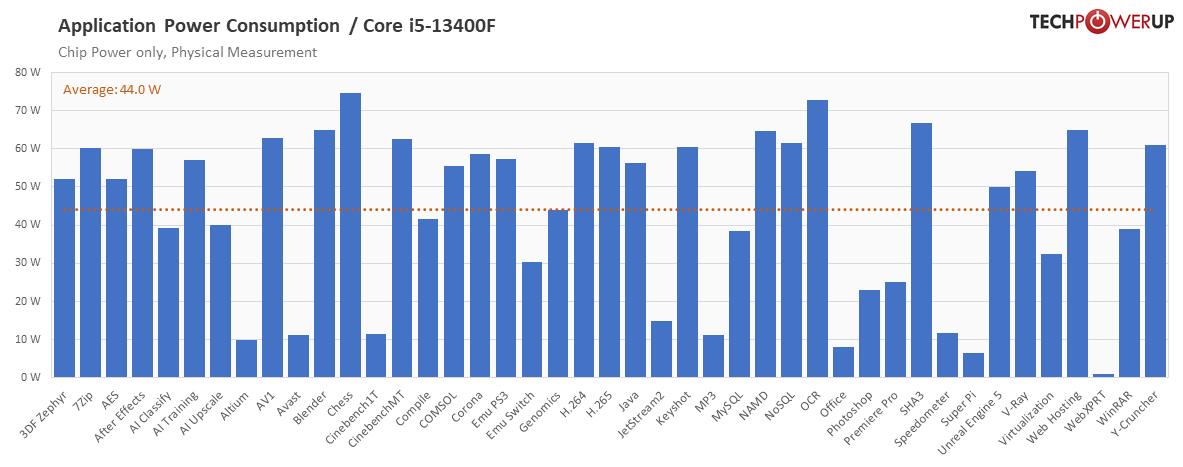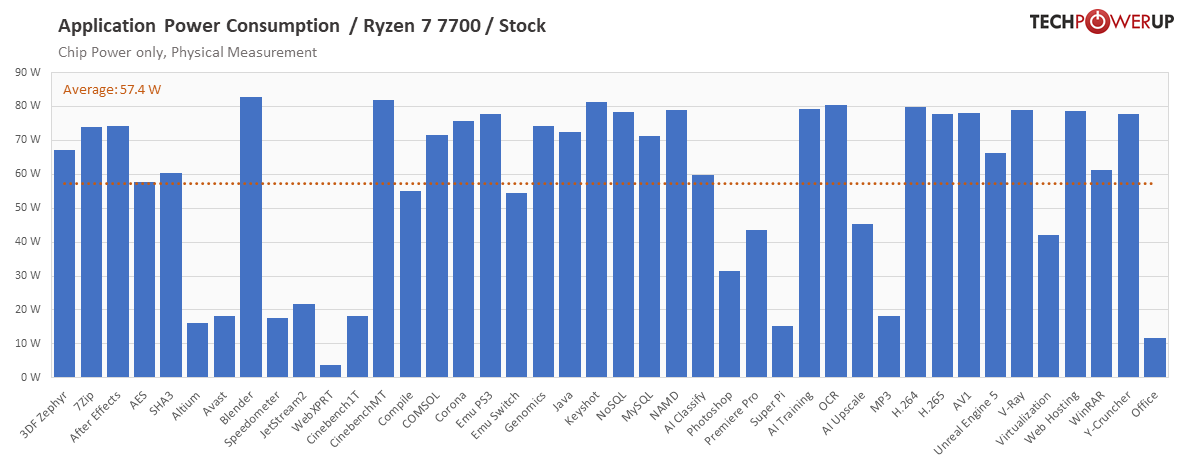I used them as a way of trying to compare products rated & marketed similarly. I did also mention the actual power data provided in this article:In your previous post you mentioned actual draw versus artificial power limits but now you use the artificial power limits as an argument...
If you look at that, it shows the 7700X uses only 95% as much power as the i5-13500 (both stock), in the "Full Load (PC)" benchmark. In the AVX load, the 7700X drops to 89% of the i5. At Full Load (package power), it's 87%. It's only at Idle and Partial Load where the i5 pulls ahead (using 88% and 91%, respectively). As I've said before, I think the chiplet architecture is adding overhead which hurts these processors' efficiency on lightly-threaded workloads. That should be a non-issue for the APUs, like those mentioned in the article.
So, there's actual power data for you. And, again, their multi-threaded performance rating shows the 7700 at 1% faster and 5% faster at single-threaded performance.
So, why is WebXPRT at like 1 W? That's implausible for a web benchmark. And if it's a DNF, then do we know they excluded it from the mean?They didn't have the 13500 but the 13400 has an PL2 of 148 just 6W below the 13500 and it barely goes above 70W
(And no, the 7700 doesn't hit its max power either)
https://www.techpowerup.com/review/intel-core-i5-13400f/21.html

Also, you refer to 7700, but where's the data on that? I didn't find a review of it, on TechPowerUp. Otherwise, it'd be great to compare like-for-like.
The point is irrelevant, because we're talking about laptops here. In particular, the CPU in this article sounds like a very low-end laptop that would struggle to hit 95 C without even a heatsink!That's your opinion...
: D
We can agree the thermal efficiency of their AM5 packaging solution sucks.And even if it is due to the packaging it still is what it is.
I am as eager as you to see benchies on the 780M and the XDNA engine in Phoenix. We'll just have to wait. And I will wait for professional reviews - I'm not going to waste time on this or that "leaked" benchmark.You know what's important for laptops?!
Having a super efficient iGPU that can do hardware acceleration on your browsing/ media consumption and face time or can stream video to the net, one that also has basic AI features to sort pictures and apply filters on them without having to use the cpu cores or the power hungry dGPU.
Where are the benches on all that?
Last edited:



